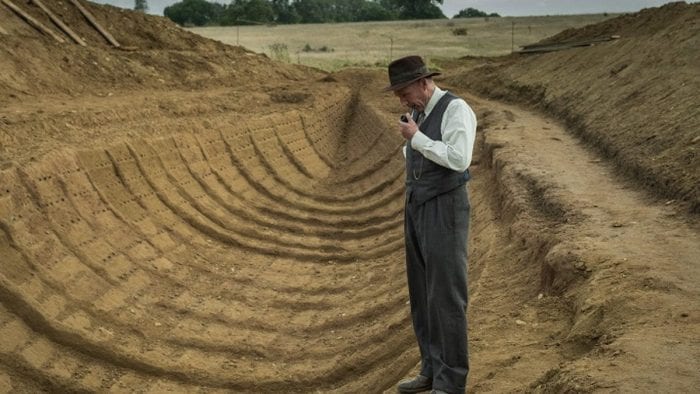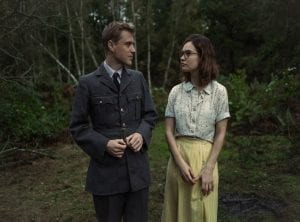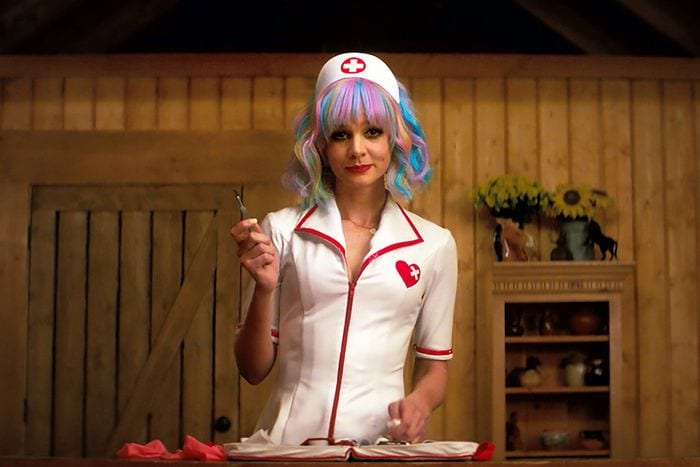By Jeffrey Sanzel
In 2019, Jodi Kantor and Megan Twohey published She Said: Breaking the Sexual Harassment Story That Helped Ignite a Movement. The two New York Times reporters had exposed producer Harvey Weinstein’s long history of abuse and sexual misconduct, leading to national awareness of the #MeToo movement. The phrase traces to MySpace 2006: Sexual assault survivor and activist Tarana Burke founded the movement as a way for Black girls to share their stories of sexual trauma.
From All the Presidents Men (1976) through Spotlight (2015) and The Post (2017), cinema has addressed difficult topics through the sub-genre of investigative journalism. These movies take a potentially static premise—working an article through phone calls, research, and interviews—and elevating them into an emotionally connective experience. Director Maria Schrader has masterfully directed Rebecca Lenkiewicz’s smart and lean script for She Said. The result is a taut, unsettling, and riveting two hours.
She Said opens with the 2016 inquiry into then-presidential candidate Donald Trump’s alleged sexual misconduct. The quick prologue presents the retaliation against his accusers and death threats against the reporter. The telling segment sets up what is to follow.
The film jumps five months to the ousting of conservative commentator Bill O’Reilly. The New York Times staff embarks on exposing sexual harassment in the workplace, finding widespread problems in large companies, including Amazon and Starbucks.
Actor Rose McGowan becomes an inciting force when reporter Jodi Kantor receives a tip that McGowan had been raped by Weinstein when she was twenty-three. Kantor pursues leads and conducts interviews, but she realizes that even high-profile stars—including Ashley Judd and Gwyneth Paltrow—do not want to go on record. This reluctance further emphasizes the power and exploitation systemic in the Hollywood community and culture.
Kantor then joins forces with Megan Twohey. They interview some of Weinstein’s victims, encountering appalling experiences. The pair relentlessly pursue leads, traveling across the country and even to the UK. In every case, they face reluctance rooted in fear.
The film accurately paints Weinstein as an arch manipulator—a bully who used emotional abuse to prey on young women. He cajoled with statements such as, “It’s just business.” He promised advancement and threatened to blackball, with his greatest weapon being his far-reaching control in the industry. One victim expresses guilt and shame over her powerlessness: “It’s like he took my voice that day.” Weinstein’s influence, coupled with Miramax’s multiple payouts and NDAs (non-disclosure agreements), kept the producer safe for years. Weinstein built the silence, and people complied.
The interviews with two former assistants—Zelda Perkins and Laura Madden—are central to the film. Madden, who initially declines to speak, hears from someone in the Weinstein organization, revealing the network of awareness in Weinstein’s court. This threat ignites Madden’s desire to cooperate with the investigation.
The film shows the difficulty in finding corroborating evidence. The title—She Said—indicates the challenge of going beyond accusations. Threats of career loss, bad publicity, and “cash for silence” are roadblocks that Kantor and Twohey must overcome. Even the EEOC (Equal Employment Opportunity Commission) shows reluctance to cooperate.
The quest takes a toll on Kantor and Twohey, invading their personal lives (though they are fortunate in the support of understanding husbands). Twohey gives birth early on and struggles with postpartum depression. Their perseverance is rewarded when several sources agree to go on public record, including Ashley Judd, who appears as herself.
As a film, She Said is relentlessly tense, with almost no breathing space, though much plays in low tones and silence. A few occasional flashbacks are a bit clumsy, but the disturbing recreation of the audiotape of Italian model Ambra Battilana Gutierrez is brilliantly recreated against images of hotel corridors. Likewise, a victim’s clothing on the floor, shown against the sound of a shower, is equally unnerving.
Carey Mulligan (Twohey) and Zoe Kazan (Kantor), both intense but never overwrought, skillfully head up a fine ensemble cast. As editor Rebecca Corbett, Patricia Clarkson once again shows her ability to be understated and fully present, guiding the two reporters with a strong hand.
Andre Braugher displays wry depth as executive editor Dean Baquet. Jennifer Ehle and Samantha Morton are outstanding as Laura and Zelda, bringing dignity to the pain of two damaged survivors. Peter Friedman’s canny lawyer, Lanny Davis, offers dimension as well as the prevailing attitude of the misogynistic “normal.” Zach Grenier’s adversarial account, Irwin Reiter, seethes with conflict.
While Weinstein’s hulking figure is only seen from the back, Mike Houston imbues the predator’s voiceovers with brutish, self-entitled cruelty. Finally, Judd’s presence lends an incredible additional weight to the film. Everyone invests in the narrative’s high stakes.
Suffused with tension, She Said finds much of its center in the necessarily uncomfortable and the shadow of the unspoken. Just before the story is about to run, Twohey expresses the prevailing fear: it will run, and people won’t care. While She Said is an incredible film, it is also a sober reminder there is still much work to be done.
Rated R, the film is now playing in local theaters.










